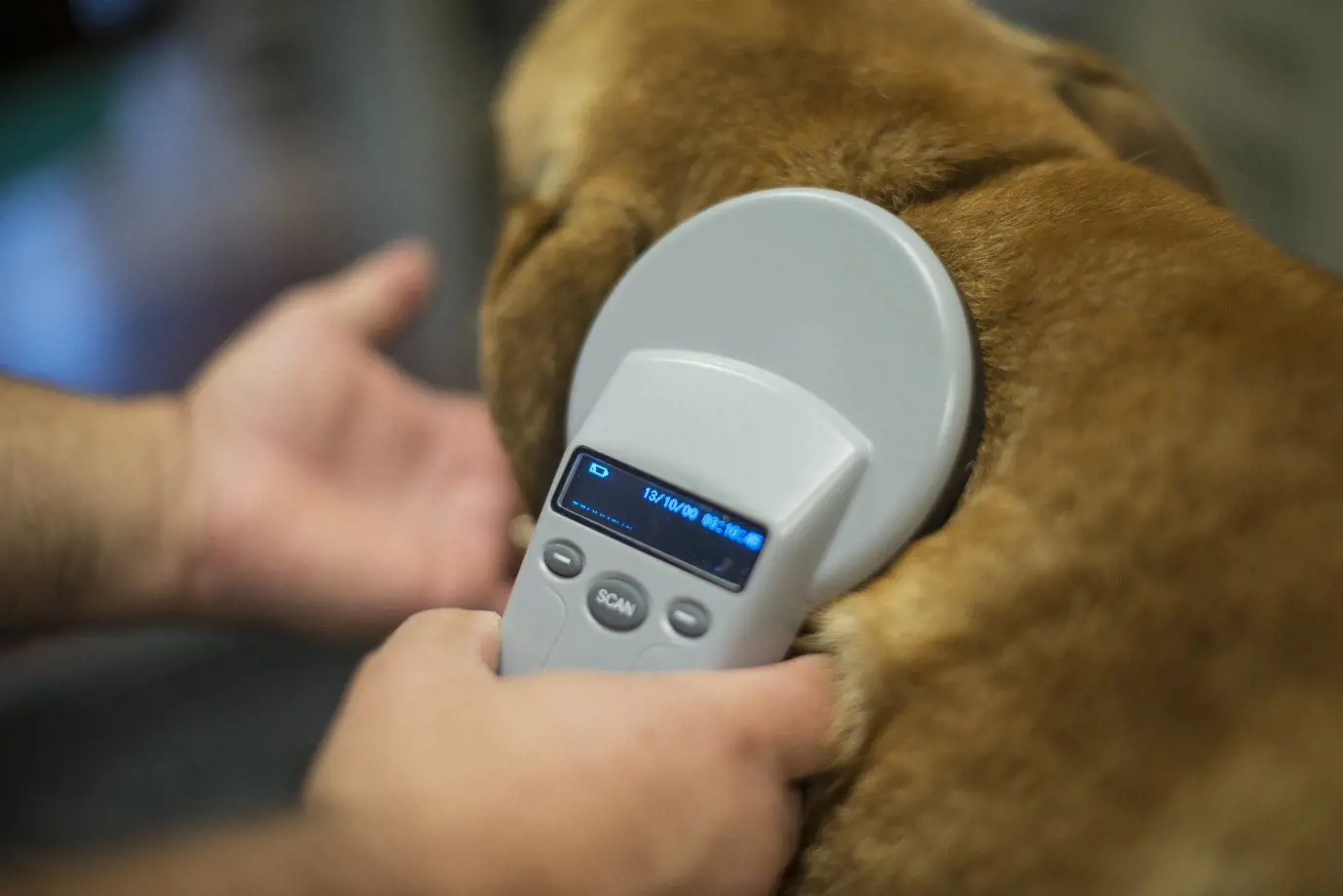Are Jack Russells hypoallergenic?
20th February, 2024

Are you searching for a furry companion that won't trigger your allergies like a pollen-filled garden? Well, look no further than a Jack Russell terrier! These energetic and lovable canines are often hailed as hypoallergenic, but is that truly the case?
The short answer is, no, Jack Russell terriers are not hypoallergenic. These energetic and intelligent dogs, while they have many wonderful traits, are known to shed quite a bit. This shedding means that they can trigger allergic reactions in people who are sensitive to pet dander.
Key takeaways
- Jack Russell terriers are not considered hypoallergenic due to their shedding and production of dander.
- Spending time with a Jack Russell terrier before committing is recommended to assess allergic reactions.
- No dog breed is completely hypoallergenic, including Jack Russell terriers.
- Regular grooming, cleaning, and using allergy prevention measures are important for managing allergies with a Jack Russell terrier.
What causes allergies in individuals
If you're allergic to dogs, it's important to understand what causes allergies in individuals. Pet allergies are primarily caused by the proteins found in the saliva, urine, and dander of animals. When these proteins come into contact with the skin, nose, or eyes of a susceptible individual, they trigger an immune response.
This response results in the release of histamines, which leads to common allergy symptoms such as sneezing, itching, runny nose, and watery eyes. It's worth noting that different individuals may have different reactions to specific allergens, and some people may be more sensitive to certain breeds of dogs than others.
Identifying the specific causes of pet allergies can help individuals take appropriate measures to manage their symptoms and maintain control over their allergies.
Understanding hypoallergenic factors
To better understand hypoallergenic factors, let's delve into the characteristics that make certain breeds, like Jack Russell terriers, more suitable for individuals with allergies.
Hypoallergenic dog breeds are those that produce fewer allergens, substances that can trigger allergic reactions in sensitive individuals. These breeds have a lower tendency to shed hair or dander, which are common allergens in the home.
Jack Russell terriers aren't considered hypoallergenic because they shed and produce dander. However, they may be more suitable for some individuals with allergies due to their short, wiry coat, which may trap less allergens compared to longer-haired breeds.
It's important to note that while Jack Russell terriers may be a better choice for some allergy sufferers, it's always recommended to spend time with the dog to see if any allergic reactions occur before making a commitment.
Consider Jack Russell insurance for your beloved pet
Our furry friends can also encounter unexpected health issues or accidents. Having dog insurance can help you avoid financial strain for unexpected costs if your pet falls ill or has an accident. Investing in a Jack Russell dog insurance plan can help provide peace of mind as an owner.
To get a dog insurance quote for your Jack Russell you can get a quote through our website. If you would like to talk to one of our dog insurance specialists, you can get in touch with us on 0330 102 5748.
The myth of hypoallergenic dogs
When it comes to the myth of hypoallergenic dogs, it's important to understand that there's no such thing as a completely hypoallergenic dog breed. While some breeds may produce less allergenic dander or have shorter hair, the proteins in their saliva, urine, and skin can still trigger allergic reactions in susceptible individuals.
Genetic factors also play a role in determining whether someone will develop allergies to dogs. Therefore, effective allergy management should focus on reducing exposure to allergens and using appropriate medications or treatments as needed.
Allergies to dog dander
You may experience dog allergies to dog dander, debunking the myth of hypoallergenic dogs. Contrary to popular belief, no dog breed is completely hypoallergenic.
Even breeds like Jack Russell terriers, which are often considered low-shedding, can still produce dander that can trigger allergies and asthma in susceptible individuals. If you suffer from allergies or asthma and are considering getting a dog, it's important to understand the potential risks.
Here are some key points to consider:
- Allergies and asthma: Dog dander contains proteins that can cause allergic reactions in sensitive individuals. These reactions can range from mild symptoms like sneezing and itching to more severe asthma attacks.
- Allergy symptoms and treatment: Common allergy symptoms include sneezing, runny nose, itchy eyes, and skin rashes. If you experience these symptoms, it's important to consult with a healthcare professional for proper diagnosis and treatment options.
Genetic factors and allergies
If you suffer from allergies or asthma, it's important to understand that genetic factors play a role in the development of these conditions, debunking the myth of hypoallergenic dogs. While certain dog breeds, such as Jack Russells, may produce fewer allergens than others, there is no such thing as a completely hypoallergenic dog.
The allergic reaction to dogs is primarily triggered by proteins found in their dander, saliva, and urine. These proteins can cause symptoms such as sneezing, itchy eyes, and difficulty breathing. Allergy testing can help identify specific allergens that trigger your symptoms, including dog allergens.
It's important to note that even if you are not allergic to one breed, you may still be allergic to another due to genetic predisposition. Therefore, it is crucial to undergo allergy testing to determine your specific triggers.
Effective allergy management
To effectively manage allergies, it's important to understand that the idea of hypoallergenic dogs is a myth. While certain breeds may produce fewer allergens, no dog breed is completely hypoallergenic.
To create an allergy-friendly home environment, consider the following:
- Consult with an allergist to determine which dog breeds may be better suited for your specific dog allergies.
- Keep your home clean and free of allergens by regularly vacuuming, dusting, and washing bedding.
- Establish pet-free zones in your home, such as bedrooms, to minimise exposure to allergens.
Jack Russell terriers and allergen levels

When living with a Jack Russell terrier, it's important to be aware of the allergen levels they may produce. While Jack Russells aren't considered hypoallergenic as other dog breeds are, their allergen levels can vary.
One factor to consider is shedding. Jack Russells have a dense double coat of fur that sheds moderately throughout the year. Shedding can release allergens into the environment, increasing the risk of allergic reactions. Regular grooming and brushing can help minimise shedding and allergen levels.
Another factor to consider is dander, which is the dead skin cells and loose hair that dogs shed. Dander contains allergens that can trigger allergies. Keeping your Jack Russell's coat clean and providing a clean living environment can help reduce the amount of dander and allergens present.
It's crucial to monitor allergen levels and take necessary steps to manage them effectively when living with a Jack Russell terrier.
Managing allergies with Jack Russell terriers
To effectively manage allergies with a Jack Russell terrier, regularly groom and brush your dog's coat to minimise shedding and allergen levels. This will help reduce the amount of dander and other allergens that can trigger allergic reactions.
Additionally, consider using hypoallergenic grooming techniques, such as using a gentle, hypoallergenic shampoo and conditioner specifically designed for dogs with allergies. These products can help soothe the skin and reduce irritation, while also minimising the release of allergens into the environment.
Furthermore, it's important to keep your home clean and free of allergens. Vacuum regularly, wash your dog's bedding frequently, and consider using air purifiers to help filter out allergens from the air.
Making an informed decision
When considering whether or not to bring a Jack Russell terrier into your home, it's important to make an informed decision. You have learnt that Jack Russell terriers aren't hypoallergenic, and while they may produce fewer allergens compared to other breeds, they can still trigger allergies in sensitive individuals.
Allergy prevention measures, such as regular grooming, vacuuming, and keeping the living space clean, can help minimise allergen exposure.
However, it's crucial to understand that no dog breed can guarantee complete allergy relief. If you or someone in your household suffers from severe allergies, it might be best to explore hypoallergenic dog breeds or consider non-shedding pets.
The decision to bring a Jack Russell into your home should be based on careful consideration of your specific allergy situation and the willingness to manage potential allergies diligently.
Conclusion
In conclusion, while it's often believed that certain breeds, like the Jack Russell breed, are hypoallergenic, this is a myth. Allergens, such as pet dander, can still be present in these dogs, causing allergic reactions in sensitive individuals.
It's important for individuals with allergies to carefully manage their symptoms if they choose to have a Jack Russell terrier as a pet. Ultimately, making an informed decision about owning a Jack Russell terrier should involve understanding the potential risks and taking necessary precautions.
Frequently asked questions
Are there any other dog breeds that are completely hypoallergenic?
You might be wondering if there are any specific breeds that are completely hypoallergenic. It's important to note that while some breeds are less likely to cause allergies, there's no such thing as a truly hypoallergenic dog.
Can hypoallergenic factors vary from one Jack Russell terrier to another?
Hypoallergenic factors can vary among Jack Russell terriers. Allergies in these dogs depend on individual sensitivities to specific allergens. While no dog breed is completely hypoallergenic, some Jack Russells may cause fewer allergic reactions than others.
Are there any specific steps or precautions to take to manage allergies with a Jack Russell terrier?
To manage allergies with a Jack Russell terrier, you can take specific steps. This includes keeping your home clean, using hypoallergenic bedding, and regularly grooming your dog. These measures can help prevent allergies in individuals living with Jack Russell terriers.
Are there any alternative ways to minimise allergen levels in a household with a Jack Russell terrier?
To minimise allergen levels in a household with a Jack Russell terrier, consider alternative allergy management techniques. While no dog breed is truly hypoallergenic, some breeds are known to produce fewer allergens, such as Poodles or Bichon Frises.
Do Jack Russell terriers need a lot of exercise?
Jack Russell terriers do require a substantial amount of exercise. These energetic, intelligent dogs are known for their lively nature and hunting instincts. In order to keep Jack Russell terriers healthy and happy, they require both physical and mental stimulation.
Exercise is not merely about maintaining their physical health but also about providing an outlet for their boundless energy and inquisitive minds. Regular exercise such as walks, runs, playing fetch, or agility training can help curb behavioural issues such as excessive barking or digging. It can also help them develop social skills when interacting with other dogs or people.
Helpful Pages
Recent Posts
Pet Insurance Quote
- 98% claims paid *
- Claims paid directly to vets
- 24/7 vet video consultations
- Interest free monthly payments




